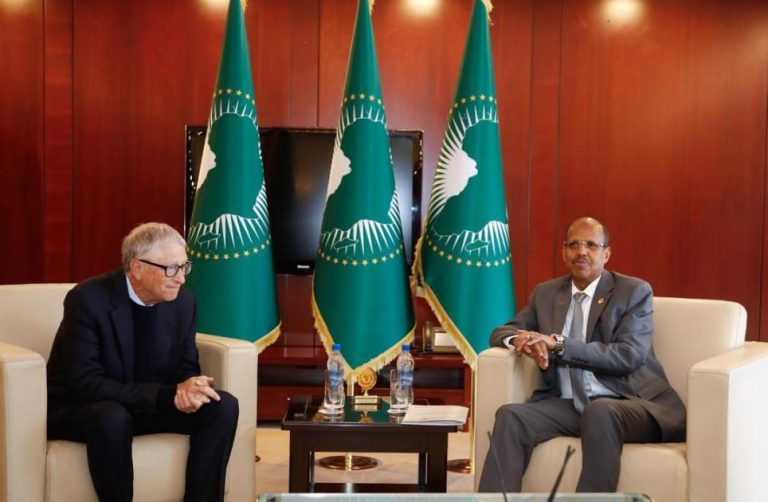Philanthropist and Microsoft co-founder Bill Gates has announced that the bulk of the $200 billion he plans to donate over the next 20 years will be directed toward Africa, with a strong focus on health, education, and development.
Speaking at the African Union headquarters in Addis Ababa, Ethiopia, Gates told an audience of government leaders, diplomats, and development partners that his philanthropic efforts will center on partnering with African governments that prioritize the well-being of their citizens.
“By unleashing human potential through health and education, every country in Africa can be on a path to prosperity — and that’s an exciting journey to support,” Gates said.
He emphasized the importance of primary healthcare (PHC) as the most effective investment for improving lives. “Helping mothers maintain good health and nutrition before and during pregnancy yields the greatest outcomes. Ensuring children get proper nutrition in their first four years makes all the difference,” he explained.
Gates commended Ethiopia, Rwanda, Zimbabwe, Mozambique, Nigeria, and Zambia for demonstrating bold leadership by embracing innovation, from expanding frontline healthcare services to adopting advanced tools to combat malaria and HIV, and reinforcing primary healthcare systems.
“I’ve always been inspired by the determination and ingenuity of Africans, even in the most resource-constrained environments,” he said. “The grassroots work to implement solutions — even in the most remote areas — has been remarkable.”
He also highlighted the transformative potential of artificial intelligence (AI) in shaping Africa’s healthcare future. Drawing comparisons to the continent’s leapfrog into mobile banking, Gates suggested that Africa could similarly integrate AI into its next-generation healthcare systems.
As an example, he cited Rwanda’s use of AI-powered ultrasound technology to detect high-risk pregnancies earlier, allowing women to receive potentially life-saving care.
According to a statement from the Gates Foundation, Gates will visit Ethiopia and Nigeria this week to assess the current state of health and development following recent cuts in foreign aid. The trip will reaffirm both his personal and the foundation’s long-term commitment to supporting Africa’s growth and resilience over the next two decades.


